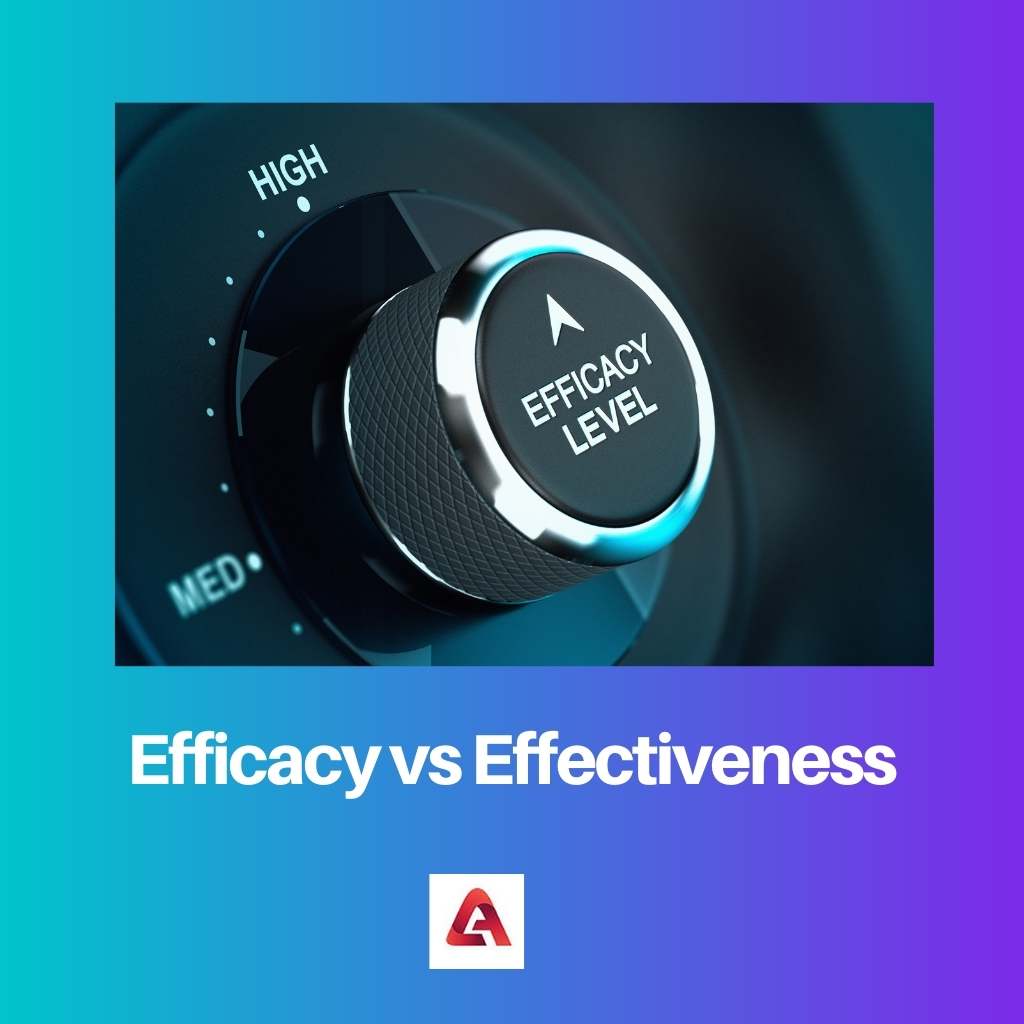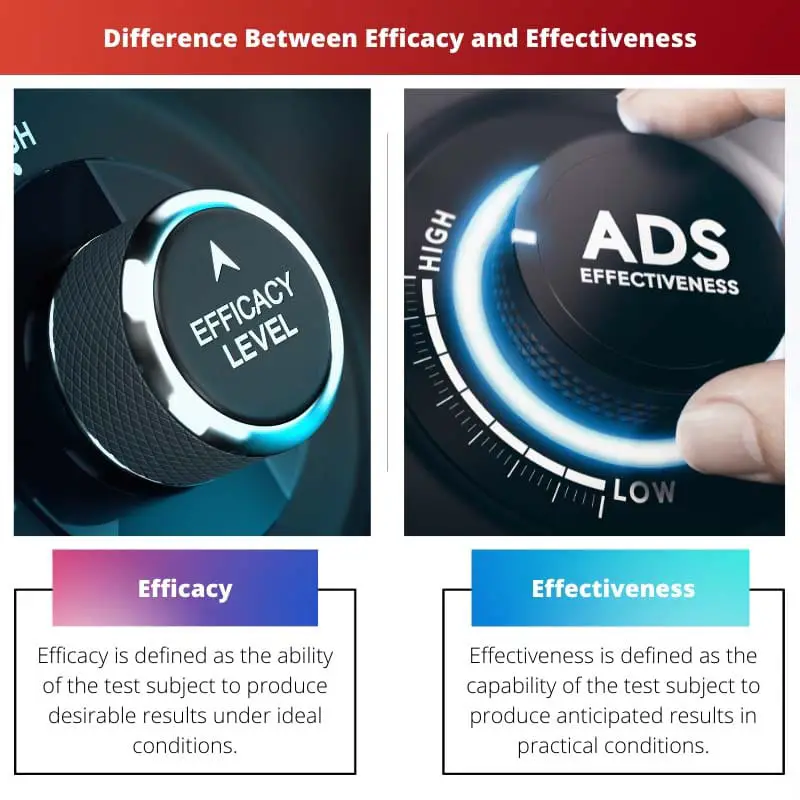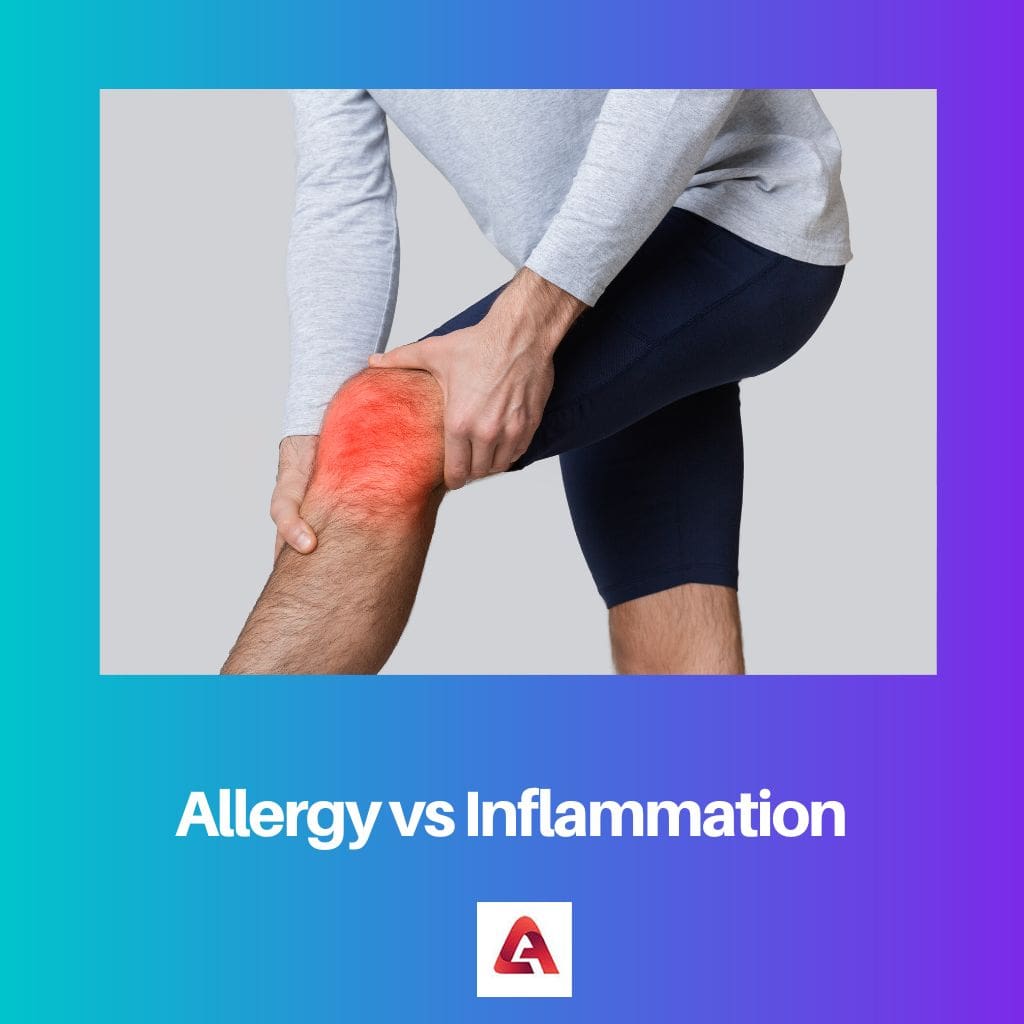While performing qualitative studies on a subject, such as conducting trials on a new drug, it is very important to consider all the conditions induced by the subject and the factors that influence the subject.
Key Takeaways
- Efficacy measures how well a treatment works under ideal, controlled conditions, while effectiveness assesses the treatment’s performance in real-world settings.
- Clinical trials and laboratory experiments focus on efficacy, while observational studies and post-market surveillance examine effectiveness.
- Effectiveness accurately represents a treatment’s practical impact on a diverse population, while efficacy demonstrates its potential under ideal circumstances.
Efficacy vs Effectiveness
Efficacy refers to the ability of a treatment to produce a desired effect under ideal conditions, such as in clinical trials or laboratory experiments. Effectiveness refers to the ability of an intervention or treatment to produce a desired effect in the real world or under “real-world” conditions.

It can be defined as the ability of the drug or the test subject to produce satisfactory and desirable results under testing conditions. This assures that the test subject performs in an intended manner under ideal conditions.
It can be defined as the capability of the test subject to produce the anticipated results under “real-world” or practical conditions in all the tests that are conducted on the test subject.
Comparison Table
| Parameters of Comparison | Efficacy | Effectiveness |
|---|---|---|
| Definition | Efficacy is defined as the ability of the test subject to produce desirable results under ideal conditions | Effectiveness is defined as the capability of the test subject to produce anticipated results in practical conditions |
| Purpose | Used to establish the working properties of the test subject | Used to evaluate the test subject under new sets of test parameters |
| Results | Results obtained are not anticipated | New results are cross-checked with the existing data |
| Test conditions | Controlled lab conditions are maintained | “real-life” conditions are maintained |
| Priority | Efficacy tests are given higher priority | Effectiveness tests are conducted after Efficacy tests |
What is Efficacy?
Efficacy is one of the performance factors used to measure a test subject’s quality, such as a new drug, in a qualitative test.
Efficacy can thus be defined as the ability of the test subject to produce desirable results under ideal test conditions. The data obtained from the efficacy test are used as the parameters upon which the test subject is further developed.
If the results obtained are not desirable or satisfactory, the test subject’s efficacy is very low.
The conditions used for efficacy testing are controlled and highly maintained. Efficacy testing is only performed under lab conditions.
Once the test subject passes the efficacy testing stage by producing satisfactory results, the subject is moved forwards to the effectiveness testing stage.
What is Effectiveness?
Effectiveness is a testing parameter used to test a test subject’s performance, like a new drug or a method of interrogation.
It is performed after the efficacy tests as the results obtained from the tests of effectiveness are compared with the existing data obtained from the efficacy tests.
Effectiveness can be defined as the capability of the test subject to produce satisfactory results under “real-life” or practical conditions.
The conditions for effectiveness testing are also different from efficacy testing. The conditions can also be changed during simultaneous tests to check how the parameters of the test influence the test subject.
Multiple tests are performed on the test subject to improve the test subject further before it can be marketed or sold.
Main Differences Between Efficacy and Effectiveness
- In Efficacy tests, the results obtained are not anticipated. The results of Effectiveness are cross-checked with the existing data
- Controlled lab conditions are maintained for the Efficacy test. In the Effectiveness test, “real-life” conditions are maintained
- The Efficacy tests are conducted before the Effectiveness tests






